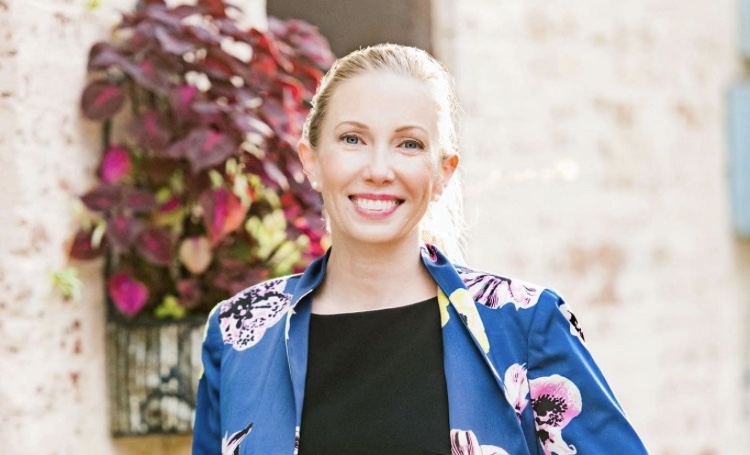The Clinician Cameo is a monthly interview series with a clinician in the Brown Department of Psychiatry & Human Behavior (DPHB).

Stephanie Hartselle, M.D., is the C.E.O. of Hartselle & Associates and a clinical associate professor of psychiatry and human behavior. She also consults on psychological components of film and television scripts.
Hartselle talks with DPHB about the perks of being her own boss, the secrecy surrounding screenplay consultation, and her crash course in Marvel and DC comics.
You practice here in Rhode Island – nowhere near L.A., obviously. So how did you get involved in consultation work for film and TV?
Through two different routes, actually. I’m a media spokesperson for the American Academy of Child and Adolescent Psychiatry, and sometimes I’ll speak about social media and streaming programs that portray mental illness in a less than dignified way. Through that work, I was contacted by a director who works for Sundance.
The other route is that I lecture at Brown for first-year medical students and tend to use movie clips to demonstrate how personality disorders or different types of episodic mood disorders can be portrayed well or mistakenly. One of the students I taught happened to be close friends with a producer.
What kinds of projects have you consulted on?
It’s strange, I don’t tend to get the poignant, dramatic stories. I either get sci-fi or comics. It’s not the genre I watch.
The first large movie I consulted on was Birds of Prey, a movie about [the DC comic character] Harley Quinn. But all I knew was that it was called Birds of Prey. I remember turning to my husband and saying, “I think they want me to consult on a bird documentary.”
I have two boys who watch all this stuff and they’re just appalled that I don’t know my DC comics from my Marvel comics. They even made me a poster that maps out which characters belong to which universe.
So how does your psychiatric expertise come into play with these fantastical storylines?
I typically consult on how character personalities would develop. It’s very theoretical, obviously. So for example, they might ask, “How would this kind of trauma affect a child who grew up with no parental kindness or warmth?” I have to do a lot of research to figure out whether a personality disorder could develop and how that might play out in front of a camera.
What does the consultation process itself look like?
I often get the script ahead of time. It’s an actual hard copy that comes in this very secure packaging. After I read through it, I’m bound to shred it. It’s like patient information. Top secret.
Then I'm Zooming in with the writers’ room and they ask me different questions. Or else I’m having a conversation with a producer or director. Everyone has been very interested and respectful of the thoughts I have to share.
Do you have a particular pet peeve when it comes to on-screen depictions of mental illness and its treatment?
The portrayal of therapists, clinicians, and physicians in dynamics that are absolute breaches of our ethics. Romantic involvement with a patient comes up a lot. I consulted on a script once where the main character was a therapist who was also best friends with her patient. I kept saying, “This cannot happen.” It's unethical to show this and not comment on how it's inappropriate.
You’re currently the C.E.O. of Hartselle & Associates. What led you to open a private practice?
I used to be the director of the Hasbro Emergency Psychiatric Department. I really loved emergency work. I worked in prisons, and loved that, too. But working within a healthcare system can be hard and frustrating. Often, you don’t have enough time with your patients because of insurance limitations or structural limitations.
I ended up loving the fact that in private practice, I could be more creative in helping people. I could do home visits and walking appointments. Exposure therapy, for example, can be much more effective if you can be present with the person in their lives. I had a patient years ago who had intrusive thoughts that made athletics difficult. So we'd go out in a field and run together. They turned out to be an incredibly fast runner. I was dying out there, but yelled, “Keep going!”